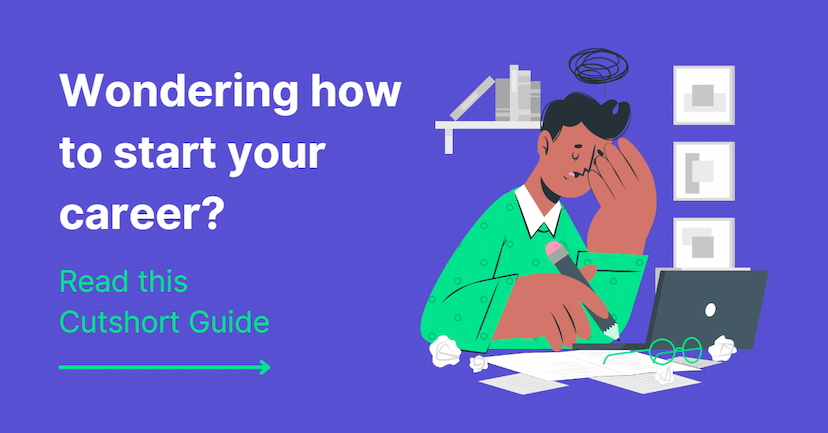Congratulations! You made it to the final round interview. This is huge since only 3% of the applications today actually move to this stage.
But this isn’t the time to get too complacent or too nervous. Many candidates prepare well for the technical interviews but are clueless about the final round and end up making costly mistakes. Let’s dive into the 5 most common errors to avoid to ensure you ace this crucial last round of interview.
Why final round is different than other interview rounds
This round is often taken by the final hiring decision maker such as CEO, Founder, Director, VP etc as the final check before hiring someone.
The goal of this round is less to assess the technical acumen (although it depends on who is taking it and why) and more to
- Revalidate that skill and job fitment
- Check cultural fitment
- Check for any red flags in the work history
- If there is some doubt on skills or role fitment, checking for other strong attributes such as drive, high agency or strong learnability that can compensate for it.
Before the final round interview
Try to get a sense of where do you stand. Ask the recruiter and interviewers who you have interacted with about what they thought about you and if they had identified any areas that they would have loved to see you being good at.
For e.g. a recruiter might say that the team has liked you very much but your experience seems to be on the higher than ideal. This could mean that in the final round interview, you could be gauged on your adaptability in a younger team.
Mistake #1: Not doing homework on the company and job role
One of the biggest mistakes candidates make during the final round interview is underestimating the importance of researching the company. Knowing the company’s products, culture, recent news, and competitors gives you an edge to tailor your answers strategically. Interviewers expect you to understand the organization beyond the job description. Skipping this prep can make you seem uninterested or unprepared. Did you know that over 65% of hiring managers say candidates who research the company are significantly more likely to get hired? Source
Mistake #2: Being too casual or overconfident
Reaching the final interview might make you feel invincible, but being overconfident can backfire. Some candidates adopt a casual tone or seem too sure about getting the job, which can irritate interviewers. The final round is where subtle distinctions separate candidates. Show humility and professionalism. Maintain energy, but don’t take anything for granted. Remember, this is one of the key stages of assessment, often involving higher-ups or the leadership team.
Mistake #3: Not asking informed questions
When asked if you have any questions, saying “No” or asking generic questions is a red flag. The final round interview assesses cultural fit and genuine interest. Ask insightful questions about team dynamics, company goals, or how success is measured. Questions like “What are the immediate challenges the team is facing?” or “How does the company uphold its cultural values in day-to-day operations?” signal your engagement and forward-thinking approach.
Mistake #4: Looking too desperate for the opportunity
Showing enthusiasm is great, but appear overly desperate can harm your chances. Interviewers value candidates who are confident about what they bring to the table and have other options. Desperation can undermine your perceived value. Balanced optimism and genuine excitement work better. Express your eagerness with a calm and confident tone that reflects professionalism and readiness.
Mistake #5: Being careless about the company cultural values
Every organization has its core cultural values. The last round of interview often tests if your attitudes and behaviors align with them. Neglecting these or appearing indifferent to company culture can cause rejection. For example, if a company emphasizes teamwork and you only highlight solo achievements, it might signal poor fit. Align your answers with the stated values and share examples that resonate with their culture.
What This Means For You
These 5 mistakes can be the difference between an offer and a missed opportunity. Thorough preparation, professionalism, and cultural alignment should be your focus. Taking the final round interview seriously shows interviewers you are ready for the role and team. After all, this is your moment to shine and differentiate yourself among elite candidates. What do you think—is there a mistake you might have overlooked before?
Frequently Asked Questions (FAQs)
- What is the final round interview?
The final round interview is typically the last step in the hiring process where top candidates are assessed not only for skills but also for cultural fit and overall suitability for the role. - How is the final round interview different from other rounds?
It generally focuses more on fit within the team and company, sometimes involving senior leadership or panel interviews, and may cover aspects not deeply explored earlier. - How should I prepare for the last round of interview?
Research the company, review the job description, prepare to discuss your experience in new ways, and have thoughtful questions ready. - Is it important to ask questions in the final round?
Yes, asking informed questions shows your interest and helps you assess if the company fits your career goals. - Should I be overly confident in the final round interview?
No, confidence is good but overconfidence or casualness can be detrimental. Maintain a balance with humility. - What are common mistakes made in the final round interview?
Common mistakes include lack of company research, appearing desperate, not asking questions, overconfidence, and not aligning with company culture. - Can the final round interview include tasks or tests?
Yes, some companies might include case studies, presentations, or technical challenges in the final round. - What should I focus on during the final round interview?
Showcase your skills, cultural fit, enthusiasm, and ask insightful questions about the role and company. - How many rounds of interviews are typical?
It varies, but the final round usually comes after 2-4 prior interviews depending on the company and role complexity. - How can I improve my chances in the final round interview?
Prepare thoroughly, remain professional and enthusiastic, build rapport with interviewers, and align your responses with the company’s vision and culture.
For more practical job tips, explore our senior professionals job search tips. Good luck in your final round interview! You’ve got this.









